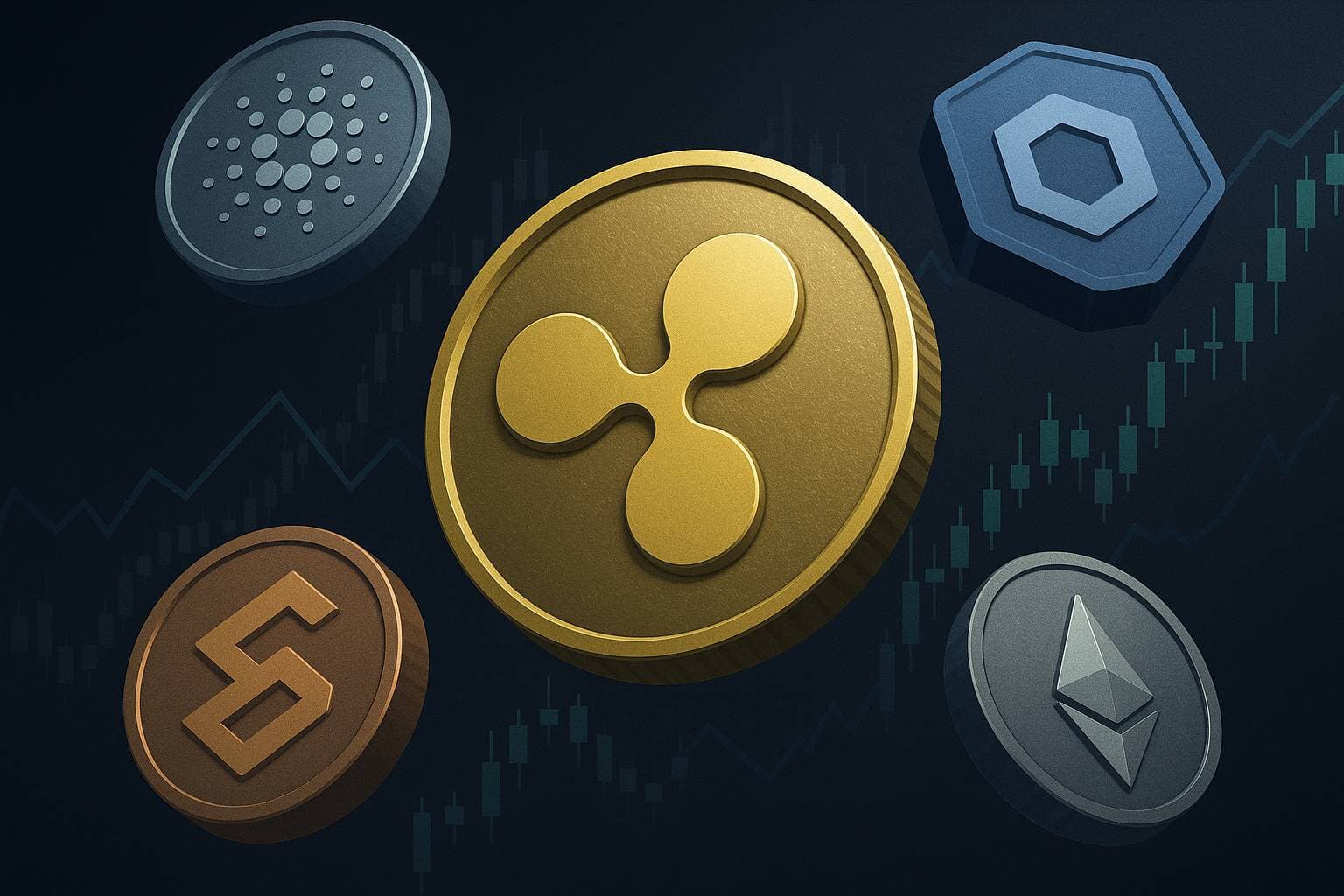The recent approval of a spot Solana exchange-traded fund (ETF) has sent ripples across the cryptocurrency landscape, signaling a potential new phase of mainstream adoption for digital assets beyond Bitcoin. The landmark decision has ignited speculation about which altcoin will be next to receive the green light from the U.S. Securities and Exchange Commission (SEC). As the market turns its attention to the October 2025 regulatory calendar, which includes deadlines for funds tracking Cardano (ADA), XRP, Chainlink (LINK), and Stellar (XLM), the race is officially on.
For years, the focus of the ETF conversation was squarely on Bitcoin and, to a lesser extent, Ethereum. Solana’s successful application has shattered that perception, opening the door for a diverse range of blockchain projects to seek entry into traditional financial markets. An ETF listing is widely seen as a powerful catalyst for growth, offering a stamp of regulatory legitimacy and unlocking access for a new class of investors. The question is no longer if other altcoins will follow, but when and which ones are best positioned to succeed.
The Transformative Power of an ETF Listing
An ETF is more than just a financial product; it is a bridge connecting a nascent digital asset to the vast world of mainstream finance. For an altcoin, securing an ETF approval represents a monumental step toward credibility. It signals to institutional and retail investors that the underlying asset has met a high bar for regulatory scrutiny, market maturity, and institutional-grade custody solutions.
The primary advantage is accessibility. An ETF allows investors to gain exposure to an altcoin through their existing brokerage or retirement accounts, bypassing the technical hurdles of crypto exchanges and self-custody. This simplified on-ramp can channel significant capital from wealth managers, pension funds, and everyday investors who were previously hesitant to enter the market. The resulting increase in demand and liquidity often leads to more stable and efficient pricing, which can further attract conservative capital.
Evaluating the Top Contenders
With several applications pending, analysts are closely examining the merits of each potential candidate. The SEC’s decision will likely hinge on factors such as a project’s level of decentralization, the maturity of its derivatives market, and its existing regulatory standing.
XRP has long been a focal point of regulatory discussion. A favorable court ruling that determined XRP is not inherently a security when traded on secondary markets could bolster its case for an ETF. Proponents argue that its established use case in cross-border payments and deep liquidity make it a strong candidate. However, its long and contentious legal history with the SEC remains a significant hurdle that could complicate the approval process.
Cardano (ADA) presents another compelling option. Known for its research-driven development and strong community backing, Cardano has positioned itself as a highly decentralized and secure smart contract platform. Its ecosystem has grown steadily, and an ETF could accelerate its adoption. The key challenge for a Cardano ETF would be demonstrating sufficient market depth and surveillance-sharing capabilities to satisfy the SEC’s concerns about potential price manipulation.
Other notable applicants like Chainlink and Stellar also have unique strengths. Chainlink’s role as a critical oracle network integrating real-world data with blockchains gives it a fundamental position in the Web3 ecosystem. Stellar, with its focus on low-cost global payments, shares some of the same potential appeal as XRP.
Price Implications and Investor Caution
The anticipation surrounding these potential ETF approvals has already begun to influence market dynamics. The prices of ADA, XRP, and other contenders have shown increased sensitivity to regulatory news, with traders attempting to position themselves ahead of a potential decision. An approval would likely trigger a significant price rally for the chosen altcoin, driven by both speculative excitement and the expectation of massive institutional inflows.
However, investors should remain cautious. There is no guarantee that any of these applications will be approved. The SEC could delay its decisions or issue denials, citing similar market integrity concerns that plagued Bitcoin ETF applicants for years. Such an outcome would almost certainly lead to a sharp price correction for the affected asset.
Furthermore, a "buy the rumor, sell the news" event is a real possibility. Even with an approval, the market could see a short-term sell-off as early investors take profits. The initial launch and subsequent capital inflows into the ETF would be critical indicators of its long-term success and its ultimate impact on the asset's valuation. As the industry watches the SEC’s next move, the altcoin ETF race promises to be a defining narrative for the market in the coming year.

